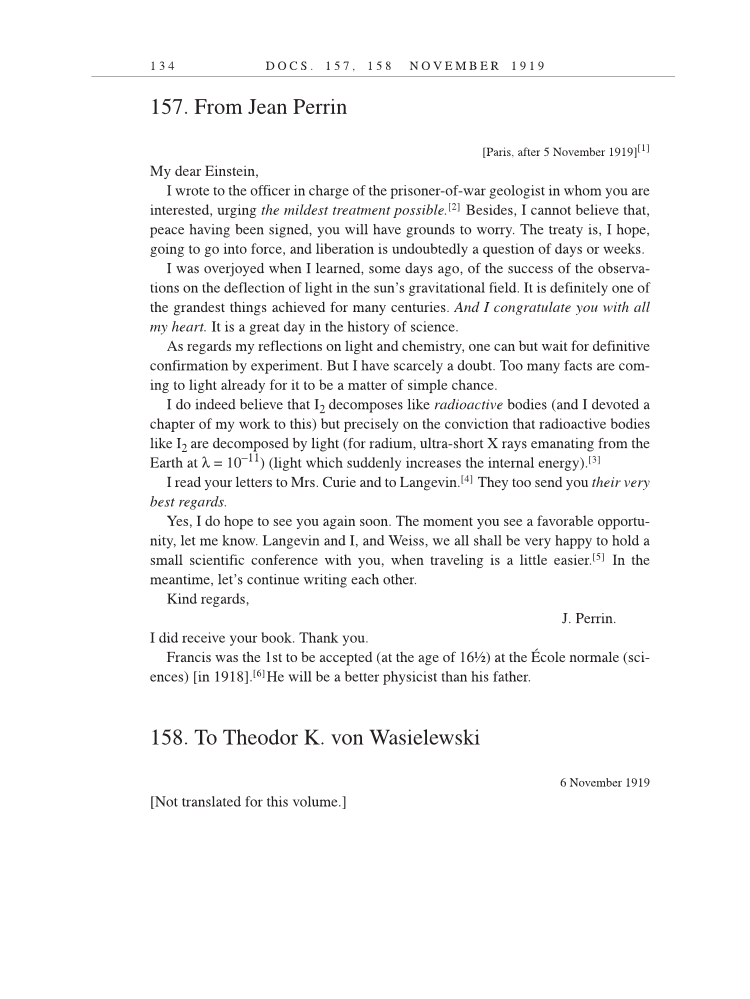1 3 4 D O C S . 1 5 7 , 1 5 8 N O V E M B E R 1 9 1 9 157. From Jean Perrin [Paris, after 5 November 1919][1] My dear Einstein, I wrote to the officer in charge of the prisoner-of-war geologist in whom you are interested, urging the mildest treatment possible.[2] Besides, I cannot believe that, peace having been signed, you will have grounds to worry. The treaty is, I hope, going to go into force, and liberation is undoubtedly a question of days or weeks. I was overjoyed when I learned, some days ago, of the success of the observa- tions on the deflection of light in the sun’s gravitational field. It is definitely one of the grandest things achieved for many centuries. And I congratulate you with all my heart. It is a great day in the history of science. As regards my reflections on light and chemistry, one can but wait for definitive confirmation by experiment. But I have scarcely a doubt. Too many facts are com- ing to light already for it to be a matter of simple chance. I do indeed believe that I2 decomposes like radioactive bodies (and I devoted a chapter of my work to this) but precisely on the conviction that radioactive bodies like I2 are decomposed by light (for radium, ultra-short X rays emanating from the Earth at λ = 10–11) (light which suddenly increases the internal energy).[3] I read your letters to Mrs. Curie and to Langevin.[4] They too send you their very best regards. Yes, I do hope to see you again soon. The moment you see a favorable opportu- nity, let me know. Langevin and I, and Weiss, we all shall be very happy to hold a small scientific conference with you, when traveling is a little easier.[5] In the meantime, let’s continue writing each other. Kind regards, J. Perrin. I did receive your book. Thank you. Francis was the 1st to be accepted (at the age of 16½) at the École normale (sci- ences) [in 1918].[6] He will be a better physicist than his father. 158. To Theodor K. von Wasielewski 6 November 1919 [Not translated for this volume.]
